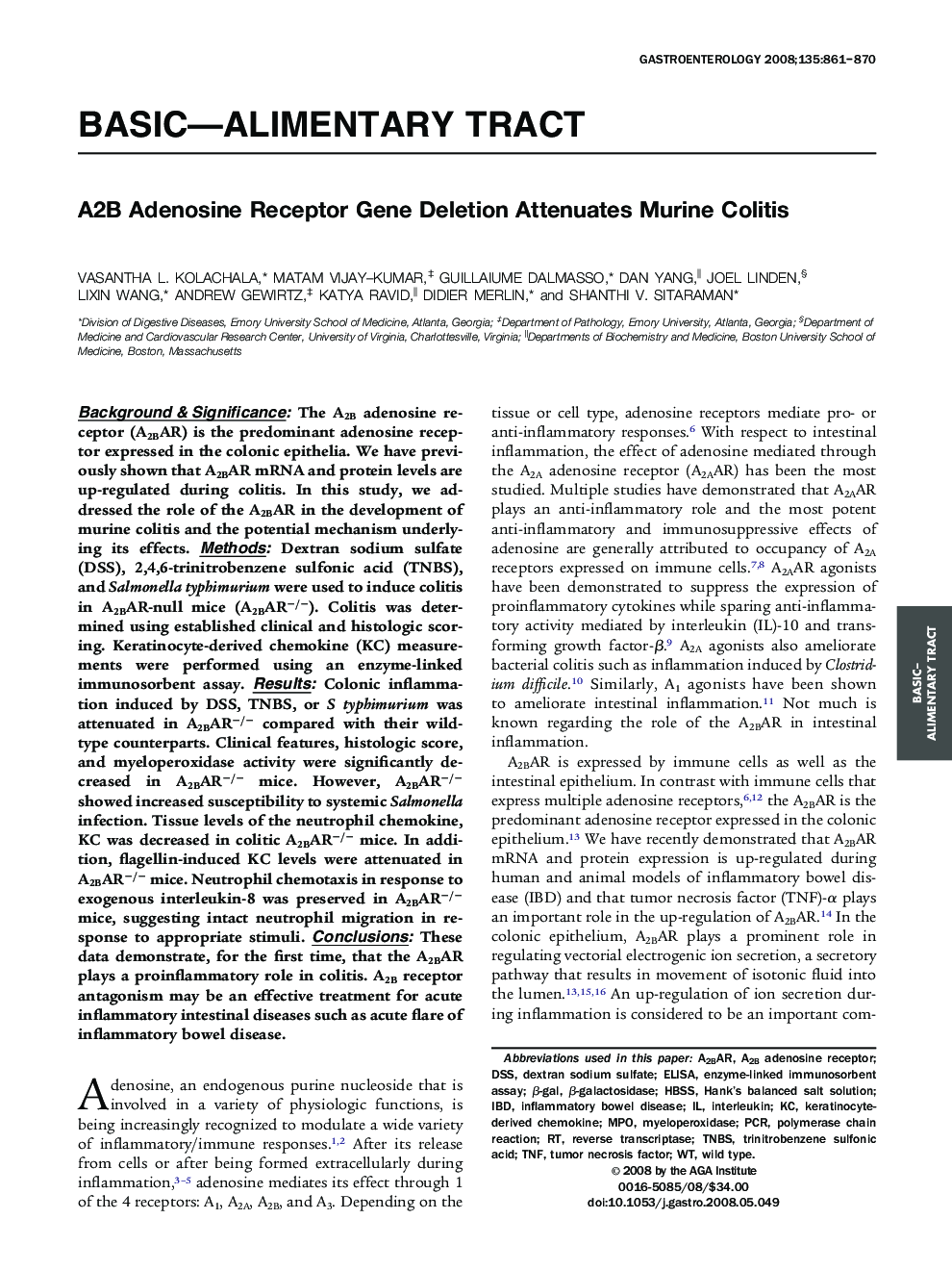| Article ID | Journal | Published Year | Pages | File Type |
|---|---|---|---|---|
| 3298524 | Gastroenterology | 2008 | 10 Pages |
Background & Aims: The A2B adenosine receptor (A2BAR) is the predominant adenosine receptor expressed in the colonic epithelia. We have previously shown that A2BAR mRNA and protein levels are up-regulated during colitis. In this study, we addressed the role of the A2BAR in the development of murine colitis and the potential mechanism underlying its effects. Methods: Dextran sodium sulfate (DSS), 2,4,6-trinitrobenzene sulfonic acid (TNBS), and Salmonella typhimurium were used to induce colitis in A2BAR-null mice (A2BAR−/−). Colitis was determined using established clinical and histologic scoring. Keratinocyte-derived chemokine (KC) measurements were performed using an enzyme-linked immunosorbent assay. Results: Colonic inflammation induced by DSS, TNBS, or S typhimurium was attenuated in A2BAR−/− compared with their wild-type counterparts. Clinical features, histologic score, and myeloperoxidase activity were significantly decreased in A2BAR−/− mice. However, A2BAR−/− showed increased susceptibility to systemic Salmonella infection. Tissue levels of the neutrophil chemokine, KC was decreased in colitic A2BAR−/− mice. In addition, flagellin-induced KC levels were attenuated in A2BAR−/− mice. Neutrophil chemotaxis in response to exogenous interleukin-8 was preserved in A2BAR−/− mice, suggesting intact neutrophil migration in response to appropriate stimuli. Conclusions: These data demonstrate, for the first time, that the A2BAR plays a proinflammatory role in colitis. A2B receptor antagonism may be an effective treatment for acute inflammatory intestinal diseases such as acute flare of inflammatory bowel disease.
